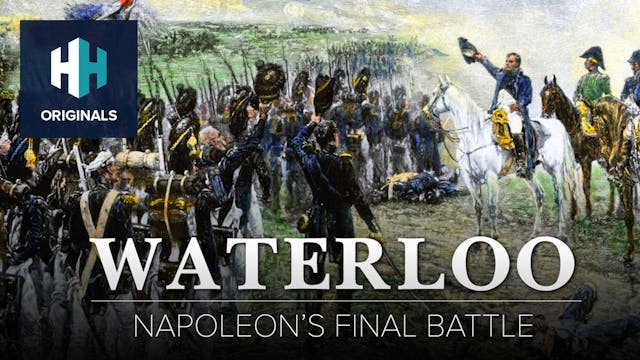The Battle for North America
Revolutions
•
59m
On 13 September 1759, on the Plains of Abraham near the city of Quebec, an outnumbered British army fought a battle that would change the history of the world: the Battle of Quebec. For the past three years, Britain and France were locked in a bitter struggle for dominance in the Seven Years War: the world’s first truly global conflict that involved every great European power and spanned five continents, leading some historians to call it World War Zero. One of the most famous theatres of this war was in North America. Today we take it for granted that Americans speak English, not French, but it could have been very different if events in 1759 had had the alternate outcome. Deep in the heart of French territory in the Americas was Quebec, the nucleus of that nation’s power in the New World. From there the French had inflicted wave after wave of defeats on the British in the years preceding 1759. Yet that year the British decided to launch a bold operation into the heart of New France to quell this threat. It sent a fleet of nearly 200 ships, carry 10,000 men, under the command of General James Wolfe, on a treacherous mission through uncharted territory with the task of taking Quebec. It was a bold strategy; just reaching New France’s capital seemed an impossible task. It thus required Britain to use its industrial strength, naval supremacy and a scientific approach to fight a campaign unlike any that had gone before. In time this new method of warfare would enable Britain to forge the largest empire in history, with London at its very centre. Yet its future success all depended on victory at Quebec. In ‘The Battle for North America’, historian Dan Snow explains why the Battle of Quebec deserves to be on your list of history’s most decisive battles. He sets sail up the St Lawrence River, retracing the route taken by the British fleet, and discovers how this pivotal battle shaped the future of the British Empire and North America.
Up Next in Revolutions
-
History and The Environment
Andrew Simms is an author, analyst and co-director of the New Weather Institute. He comes on the show to explain how history is full of examples where humans have proven their capacity to make radical transformation. He explains why we must be capable of similarly-extraordinary things today to co...
-
Broadway Tower: A Folly of Delight an...
High on the peak of the Cotswolds stands one of the most remarkable buildings in Britain. Built as a folly in the final days of the 18th century, Broadway Tower sprung up during the height of the French Revolutionary Wars under the distracted watch of the architect James Wyatt. In the following y...
-
Waterloo: Napoleon's Final Battle
In Spring of 1815 the exiled Napoleon Bonaparte, one of history's most accomplished generals, escaped his jailers and returned to Paris in what is known as the 'Hundred Days'. After receiving the news, the powers of Europe formed the Seventh Coalition to remove Napoleon from the French throne and...



